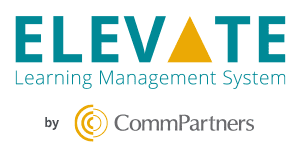
As learning businesses, it’s critical that we know how to empower our learners in order to achieve long-term success. That’s because empowerment is at the core of a successful business model for all learning businesses.
So how can we best empower learners? It starts by committing to understanding and applying what we know related to how people learn—essentially, metalearning.
In this episode of the Leading Learning Podcast, Jeff and Celisa discuss 7 specific “metalearning moves” you can utilize to effectively support, improve, and empower lifelong learning.
To tune in, just click below. To make sure you catch all of the future episodes, be sure to subscribe by RSS, Apple Podcasts, Spotify, Stitcher Radio, iHeartRadio, PodBean, or any podcatcher service you may use (e.g., Overcast). And, if you like the podcast, be sure to give it a tweet!
Listen to the Show
Read the Show Notes
[00:18] – Our view is that at the core of a successful business model for all learning businesses is empowerment. And empowering learners boils down to asking—and answering—questions like, “How will we make life better for our learners?” and “How will we help them do what they want and need to be able to do?”
Even if you have a long list of educational offerings, if you don’t effectively empower your learners and create real learning results, it will be difficult to achieve long-term success. Your learners won’t consistently come back for more, and you won’t earn the reputation you need to keep attracting new learners—particularly as education markets grow more and more competitive. This imperative to empower learners applies whether we’re talking about seminars, conferences, or online courses—really it applies to any kind of educational experience that you offer.
We’ve talked about a number of topics that relate to learner empowerment in past episodes. Way back in episode 42, we discussed how imperative it is for learning businesses to create real impact with their learning experiences. Since then, we’ve addressed motivation, engagement, and adult learning principles, all of which play a role in empowering learners.
But in todays’ episode, we want to talk about applying, and helping learners apply, specific practices that we know support effective learning. Which of course results in empowering learners.
What we’re getting at is essentially metalearning, which we define as being aware of how learning happens and using that awareness to improve learning. Metalearning practices are essential for learning business professionals to master. More importantly, learning businesses need to be certain that whoever is delivering and facilitating learning experiences for their organization is aware of and committed to these practices—whether that means staff, subject matter experts, or, as we’ll argue, the learners themselves.
So in this episode, we’re going to look at 7 practices, or what we’re calling “metalearning moves” to empower lifelong learning.
Reflection Questions

[02:51] – As regular listeners know, we’ve started adding reflection questions to each episode of the Leading Learning Podcast.
So, before we get to those 7 metalearning moves, here are a couple suggestions for what to key in on while listening.
- As you hear us talk about the 7 metalearning practices, think about how you’re already leveraging each. After the episode, think about which ones your learning business would benefit from leveraging better.
- Think about the stakeholder groups that need to know about these metalearning moves—your instructors, your conference presenters, your staff, your learners, and so on. Then consider how you can educate—or better educate—each group.
[03:38] –
1. Play to Prior Knowledge
One of the perennial challenges of adult educational experiences is that the people who participate often vary widely in their levels of prior knowledge about whatever topic the experience proposes to address. This prior knowledge gap can be sizable even when participants come from similar industries, job roles, or even the same organization.
Because factors like previous education as well length and nature of work and life experience always vary within a group of individuals. These variations matter because there is a wealth of research suggesting that what we are capable of learning depends to a large extent on what we already know.
In group situations there is, of course, no way to completely level prior knowledge across participants, but it is possible to take steps in advance of an educational experience to help compensate for differences in prior knowledge.
One is to provide a pre-assessment that can make both learners and the instructor aware of any potential knowledge gaps. Feedback from the assessment should include recommended resources for addressing gaps and, ideally, you should make it clear that learners are expected to make the effort to use the resources and address the gaps.
Another approach—and it’s one we’ve tried with our own events and was actually the motivation for starting the Leading Learning Podcast—is to provide a common body of content in advance of an educational experience. This helps ensure that learners have some common point of reference. We published the original Leading Learning Podcast episodes along with a short list of recommend readings in advance of our first Leading Learning Symposium.
Below is a brief video of Jeff introducing the first of the Emphatically Recommended Readings™, Make It Stick: The Science of Successful Learning.
While the results were mixed (meaning not everyone did the pre-work), our experience was that providing relevant content in advance did help with addressing the issue of prior knowledge.
Again, a key part of success with this or another approach to addressing differences in prior knowledge, is communicating the expectation that learners take advantage of the resources provided.
This section was adapted from https://www.leadinglearning.com/emphatically-recommended-readings/
Sponsor: CommPartners
[05:57] – If you have resources you want your learners to take advantage of, we encourage you to check out our sponsor.
CommPartners helps learning businesses conceive, develop, and fulfill their online education strategy. Their solutions begin with Elevate LMS, an award-winning learning platform that provides a central knowledge community and drives learner engagement. To extend the value of Elevate, CommPartners provides a wide range of online education services including curriculum design, instructional design, fully managed Webinars, Webcasts, livestream programs, and virtual conferences.
[06:37] –
2. Provide Opportunities for Effort
We often work with organizations that feel that making learning as convenient as possible is the key to success with adult learners. This is true only to a very limited extent.
You do want to make it easy for your learners to find you, easy to find the relevant learning experiences you offer, and easy to buy and access those experiences.
But that’s pretty much where “easy” and “convenient” end. If you want the actual learning experience to have an impact—by which we mean, be remembered and actually be applied in real life—the learner has to make an effort. Period.
In talking about making an effort we have in mind concepts like “effortful retrieval” and “elaboration.” Effortful retrieval means challenging learners to recall specific information or actions from memory, as opposed to, say, just passively reviewing content or notes. Elaboration means expressing ideas and concepts in your own words and then connecting them to what you already know.
Learners should consistently be encouraged to engage in these practices throughout the learning experiences, and there should also be built in opportunities where effortful retrieval and elaboration are called for through, for example, posing reflection questions. The learning potential of effort built into reflection questions is why we’ve started offering reflection questions with each episode.
Another opportunity for effort is to ask learners to explain or even teach a concept to other students—or if they are studying independently—to a colleague or friend.
To learn more, check out Jeff’s related blog post, Those Expecting to Teach Learn Better and Explain It To Me: The Beneficial Effects of Explaining for Memory.
This is also a great place to mention the whole concept of working out loud or showing your work, which we have covered in episodes with Michelle Ockers and Jane Bozarth.
Elementary school kids from time immemorial have been plagued with the imperative from their teachers to show their work in subjects like math. Whether they know the learning science, the teachers are on to something. Showing your work requires effort, and it also forces you to pay attention not just to the explicit aspects of a problem, skill, or body of knowledge, but also to the implicit aspects. It makes you go deeper in your learning and retain key details and concepts you might not otherwise retain.
The bottom line is that you have to both encourage and build in opportunities for effort if you want to be sure your educational offerings will have a lasting impact.
Of course, to get back to that whole idea of convenience and generally making things easy for the learner, you may be thinking some learners will be turned off by having to put in this much effort and may even resist or decide not to participate in the experience you offer. And you’re, of course, right.
But if you are being careful to maintain a sense of relevance and appeal to implicit motivation—concepts we have covered in previous episodes—there are going to be many fewer learners who will resist than you might think.
Just as importantly, you have to consider effort from a strategic standpoint. Your learning experiences are bound to be more effective, more memorable, and more impactful if they require effort. They will almost certainly stand out from the commodity continuing education experiences that plague many fields. While they’ll repel some learners, they will also attract and produce learners who are much more likely to return for more and spread the word.
So make the effort to build in more effort.
[11:03] –
3. Space the Effort
Effort is essential, but for it to be really effective, it hasto be spaced over time. And that brings us to our third metalearning move.
Cramming doesn’t stick. “Binge” learning isn’t learning. All the research and everything we know about the human brain tells us this is true. So you need to design your courses and other learning experiences so core concepts come up repeatedly, along with opportunities for students to practice and test themselves.
This may mean building review of previously covered concepts into lessons, or it could mean sending out “drip” messages (which many learning management systems support) to prompt learners to answer questions or apply an idea in their work or life.
A simple approach to this that we’ve highlighted before is Google whisper courses. The basic idea is that very often learners often don’t really need another course so much as they need a reminder to help prompt them to review and apply what they know—like a whisper in their ear.
So a whisper course is a series of e-mails, each with a simple suggestion, or “whisper,” for an employee to try—in a specific Google example, the e-mails cover actions for managers to try in their one-on-ones or team meetings. Over the course of ten weeks, the managers are supported in building better psychological safety on their team by trying these whisper suggestions.
And, if you want to dig deeper on the topic of spaced learning, we recommend you check out Spacing Learning Over Time (free) from Dr. Will Thalheimer.
You can also check out our episode, Rethinking a Dangerous Art Form with Dr. Will Thalheimer.
[13:36] –
4. Set the Stage for Transfer
The key problem with a lot of educational experiences is that the learning evaporates once the learner exits—whether exiting a physical actual classroom or an online course. To combat the forgetting problem, you have to encourage and guide learners to practice and apply what they are learning not only over time—as we just discussed—but also in a range of relevant situations.
There’s a lot evidence that it helps to vary the context in which you study or practice if you want to be able to apply what you learn as flexibly as possible. It is one thing, for example, to develop a great forehand in tennis when a backboard is your opponent. It is quite another to play against a range of other players of varying capabilities, or to play on different types of courts, or in different types of weather.
If you really want to become a great tennis player, you need to be able to adapt to all those variations and even more. The only way to develop this ability is by putting your forehand through its paces in many different contexts.
In general, learners need to practice and review in ways that corresponds to how they will ultimately use whatever you teach. This is the only way that what you teach will transfer from theory into practice, from the classroom into the reality of the learner’s situation.
As your learning business designs courses or other learning experiences, you need to think about how you can challenge your learners to apply whatever you are teaching in different contexts. For online courses, in particular, you have to think beyond the screen—again, the Google whisper course is a good point of reference.
Put yourself in the learner’s shoes and think of the many contexts in which what you are teaching may apply. Then, provide guidance to the learner for practice in these contexts—and possibly even require some sort of evidence, like a report on the experience, as an assignment in the course.
Sponsor: AUTHENTIC Learning Labs
[16:05] –If you’re looking for a partner to help you sort through the evidence of the impact of your learning, we encourage you to check out our sponsor.
AUTHENTIC Learning Labs is an e-learning company that offers products and services to help improve your current investments in education. One key product is Authentic Analytics, a dedicated suite of visualization reports to help analyze and predict the performance of education programs. Organizations use Authentic Analytics to easily scan through volumes of data in intuitive visuals, chart performance trends, and quickly spot opportunities, issues, and potential future needs.
[16:56] –
5. Provide Opportunities for Feedback
We’ve talked about a lot of ways that learners can make an effort and practice and about how they should do this over time and in different contexts. As all of this is happening, there need to be ways for learners to receive meaningful feedback on their performance. So the fifth metalearning move is to provide opportunities for feedback.
We’ve already hinted at one of the primary traditional approaches to this when we talked about effort, namely assessment. Whether as a result of a formal test or simply through self-testing in the form of effortful retrieval or elaboration, learners not only bolster their long-term retention, they are also able to identify areas in which they may need to study or practice more. They can self-calibrate their learning based on this very basic level of feedback.
Ideally, though, learning businesses should leverage assessments as a way to provide meaningful guidance to learners. Online testing, in particular, offers the opportunity to provide learners with immediate feedback. And immediacy is great, but you also have to know what to say.
We got to talk with Dr. Patti Shank about feedback, and that conversation will be part of a forthcoming episode here, but we’ll plant the seed now that there’s research that shows that the type of feedback your online test provides shouldn’t always be the same—that is, learners who are more advanced in topic or skill are going to benefit from different kinds of feedback (think hints and second tries and references to materials) versus novices, who have a lower cognitive load threshold and tend to benefit from lessinformation in the feedback.
To learn more about how to effectively use multiple-choice questions, check out the resources below:
- 9 Tips for Writing Effective Multiple-Choice Questions–and More (Celisa Steele)
- Do THIS, Not THAT When Writing Multiple-Choice Questions (Patti Shank)
- Why multiple-choice questions are (too often) problematic (Patti Shank)
Of course, assessment if far from the only way to provide feedback. Another big opportunity is for an instructor to provide feedback to students in the context of the learning experience, whether this means in real time, through the use of asynchronous discussion, or through comments on assignments completed by the learner. It’s important to keep in mind, though, that just as feedback for assessment questions needs to be carefully crafted, so too feedback from instructors requires care.
The truth is, most of us are not all that great at giving helpful feedback to other people—and that weakness can actually be compounded when the person giving the feedback is an expert. Peer feedback can also have value, but again, most people have never been taught to give effective feedback.
This whole area of what is essentially giving people feedback on their performance is one that is rich and complex enough that we think we’re going to need dedicate an episode to sometime soon. In the meantime, we’ll stress that’s an area in which to proceed with some caution and do your homework.
To help with that homework we recommend you check out the recent article, The Feedback Fallacy and/or Mastering Deeper Learning, Part 2: Feedback. And, we’ll continue to add other resources here as we find them.
Also check out our related episode, Maximizing Learning with Mindset.
[20:15] –
6. Teach Learning
One of the best ways to empower your learners is to teach them to learn effectively.
If you think about your own experience in school, the chances are pretty good that you were never really taught how to learn effectively. In fact, it’s been only in the last decade or so that we’ve really started to reach consensus about what works in learning—which includes most of the practices we’ve discussed so far in this episode.
And this is knowledge that our learners need as much or more than we do. We need to teach our learners how to learn. And this is something most learning businesses don’t do at all, in our experience.

Malcolm Knowles, who’s considered the father of andragogy, the progenitor of adult learning theory, wrote that,
It is a tragic fact that most of us only know how to be taught; we haven’t learned how to learn.” (Knowles, Self-Directed learning: A guide for students and teachers. 1975, p 14).
That really needs to change.
Most learners, for example, are likely to be unaware of the points we’ve covered above. They almost certainly don’t know how to develop a strategy for getting the most out of your educational products. You can help them. And the learners who are likely to be most valuable to your learning business will thank you for it.
So make sure they know about concepts like effortful retrieval, elaboration, and the value of spaced practice.
Teach them about practices like how to take and use notes effectively. They can make these and many other metalearning practices part of any learning experience they engage in regardless of whether whoever is offering the experience has thought about them.
To go back to our theme of empowerment, when you teach your members and customers to engage in these practices, you are empowering them to be the effective lifelong learners they need to be in today’s world. So what are some ways to do that? They might include:
- Addressing metalearning concepts and skills in opening sessions at conferences
- Including a brief video segment and or a downloadable tip sheet with your online courses
- Featuring interviews with learners, members, customers, and staff about how they apply metalearning practices in their work and life
- Arming your subject matter experts and presenters with brief metalearning facts and tips slides to use at appropriate points during sessions they lead
We challenge you to do some brainstorming either on your own or with your group about what else you might be able to do here—you can probably come up with dozens of examples about how to convey these metalearning principles. But keep in mind as you do this, that really what you’re doing here is providing extra value as a learning business.
It’s probably going to be impossible to address all of the principles we highlight here in every learning situation—and, of course, learners will engage in many more learning experiences than the ones we offer. Learning to make use these principles on their own will really set them up for success as lifelong learners no matter where and how they’re doing that learning.
To learn more, check our related episodes, Learning How to Learn with Dr. Barbara Oakley and Make It Stick with Peter C. Brown as well as Jeff’s blog post, Applying the 6 Key Adult Learning Principles to Yourself.
[24:10] –
7. Be an Avatar
We’ve found again and again over the years that the people working in learning businesses often don’t take enough time themselves to participate in educational experiences themselves. They don’t regularly attend workshops, conferences, or other events where they can continue to build their skills and knowledge.
And, of course, in a time when we are making so many advances in our knowledge about how we learn and when so many aspects of the business landscape are changing rapidly, it’s critical to build focused, formal learning opportunities into your schedule
But, of course, formal educational events are hardly the only way to learn. As we’ve discussed frequently, learning is not an event, it’s a process, and one we all need to consciously cultivate as part of our everyday lives and work.
That means taking advantage of the many less formal approaches to learning that are available. That includes things like reading blogs and curating content that is useful to us and that we can share with others – see our related episode, Capitalizing on Curation.
It may even mean producing original whether through blogging, videos, or – dare we say it – a podcast.
It may also include stepping up and leading educational sessions at events for other learning business professionals. The bottom line is that we need to be the learners we expect our learners to be.
We must make participation in learning activities, both formal and informal, a priority. Indeed, we must make it a habit woven into the fabric of our lives.
We must put in the time and effort, take risks, fail, reflect, share our experiences, and continue onward.
We must fully engage in the way that we hope those we lead will engage.
And that’s really what we man by being avatars—as leaders and aspiring leaders, we must be individuals who manifest the idea of learning and embody the ideal of “living in a state of continually becoming.”
There is no denying that this is difficult work. But it strikes us more and more as the essential work of leaders.
This section was adapted from https://www.jeffthomascobb.com/leader-learner-avatar/
[26:54] – Wrap-Up
Reflection Questions

- How are you already leveraging these metalearning practices? Which do you need to make better use of?
- Who are the stakeholder groups that need to know about these metalearning moves? And how can you educate—or get better at educating—each group on using these metalearning moves?
If you are getting value from the Leading Learning podcast, be sure to subscribe by RSS, Apple Podcasts, Spotify, Stitcher Radio, iHeartRadio, PodBean, or any podcatcher service you may use (e.g., Overcast).
We’d also appreciate if you give us a rating on Apple Podcasts (formerly known as iTunes) by going to https://www.leadinglearning.com/apple. We personally appreciate your rating and review, but more importantly reviews and ratings play a big role in helping the podcast show up when people search for content on leading a learning business.
And we would be grateful if you check out our sponsors for this quarter. Find out more about AUTHENTIC Learning Labs and CommPartners.
Finally, consider telling others about the podcast. You can send a tweet by going to leadinglearning.com/share. You can also Like us on Facebook at facebook.com/leadinglifelonglearning and share us with others there. However you do it, please do help to share the good word about the podcast.
[29:21] – Sign off
See Also:
- Making You a MetaLearner With Nasos Papadopoulos
- One Word: Impact
- Learner Engagement – What It Is and How to Foster It
- Exploring Motivation and Learning
- Revisiting Adult Learning Theory
- Showing Your Work with Jane Bozarth
- Learning How to Learn with Dr. Barbara Oakley
- Make It Stick with Peter C. Brown
Significant portions of this post/episode were adapted from https://www.learningrevolution.net/empower-lifelong-learners/




 Showing Your Work with Jane Bozarth
Showing Your Work with Jane Bozarth
Leave a Reply